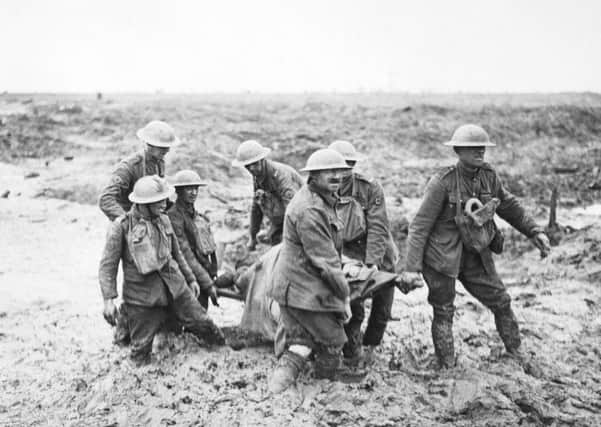Remember the men who had the courage to say ‘no’ to war


We’ll hear stories of incredible bravery, ones of abject stupidity, some of political adroitness and others of political naivety. We’ll also hear of the camaraderie and popular songs which helped to keep the spirits up.
There will be accounts of the thousands of lives lost, of the sacrifices made and the willingness of women to take over jobs previously regarded as work for men.
Advertisement
Hide AdAdvertisement
Hide AdBut one aspect missing from the collective public recall so far is that of the men who had the courage to say “No” to war. These men usually had four main reasons not to fight for King and Country. They rejected the concept that war was a just way to settle disputes, they believed the Commandment “Thou shalt not kill” should be obeyed, they asserted this war was not being fought to improve the lives of the majority, but in the interests of big business and the ruling classes or that the Brotherhood of Man precluded shooting at someone just because he was German, Austrian or Turk.
Make no mistake about it, it took a lot of courage to say “No”. War fever was rife. The decision not to march off to war with the rest of the lads was regarded as almost traitorous in some communities.
White feathers were passed around. Men who refused to join up were shunned, ridiculed and, in some cases assaulted. Whole families were split up as brother was set again brother. Some men were forced to move away with their families, from the towns and villages where they were born, because of the hostility to their decision.
When conscription came along in 1916, the matter took a turn for the worse. Conscientious objectors, or “conchies” as they came to be known – a pejorative term – were brought before a military service tribunal. These tribunals, it is well considered, were harsh towards the “conchies”, regarding them as lazy, unpatriotic, ungrateful shirkers who were looking to benefit from the sacrifice of others.
Advertisement
Hide AdAdvertisement
Hide AdSome men accepted work of national importance, such as farming, some accepted non-combatant duties, but 6,000 were ordered into the Army – and when they refused orders they were jailed.
The 7,000 who agreed non-combatant duties often found themselves experiencing the horrors of modern warfare. Many were sent to the front lines as stretcher bearers. They went off into no man’s land unarmed and carried away to safety the screaming, bloody and contorted victims of bullet, shell and gas. They retrieved the bodies of the still living and the dead often under withering fire from machine guns and artillery canons. They picked their way from shell hole to shell hole gathering up the remains of the sort of lads they might have had a pint with on a Saturday night in Blighty.
Those were the lads who had sought adventure from the humdrum life of hard graft at home, had been told it would be “all over by Christmas” and who died in their thousands to win 25 yards of Flanders mud.
In Tavistock Square Gardens, London, there is a memorial stone, unveiled in 1994, dedicated to conscientious objectors who have “established and maintained the right not to kill”. I hope that before 2018 there will be some nationally recognised commemoration there of the men who had the courage to say “No” to the war.